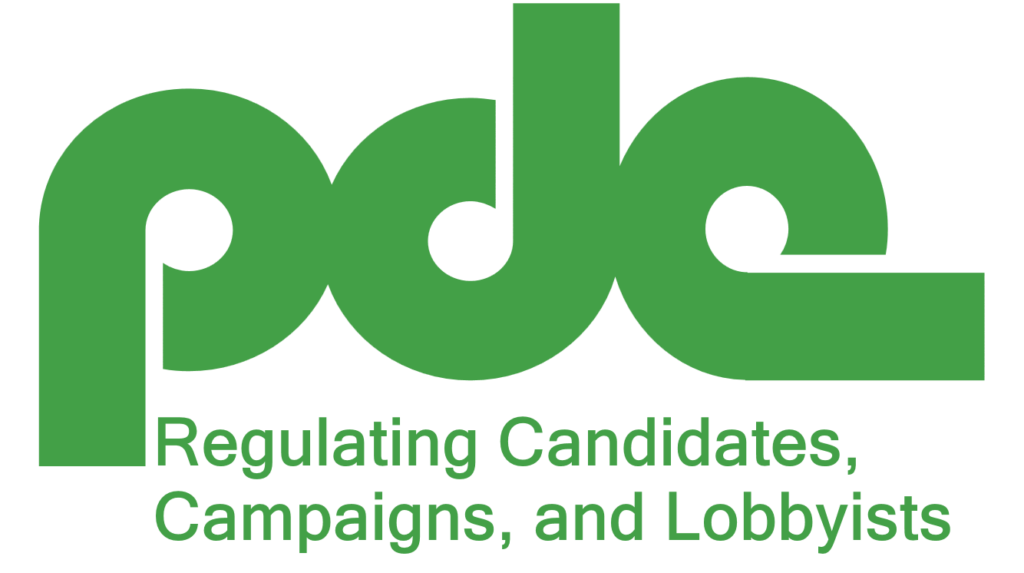Drive through the tunnel in Seattle and it’ll cost you from $1.25 to $4.25. Want to visit a state park? That will cost you from $11.25 to $35. Are you a mental health counselor in WA state? If so, I hope you paid your $150 fee, per year, to the state for the privilege of being licensed.
Washingtonians, and many who are just visiting, now have to pay a “fee” for myriad public functions which until relatively recently, were paid for by our taxes. But if you are a lobbyist making $450k a year, or a campaign which spends $25million trying to convince Washingtonians we really don’t need to worry about Climate Change, or a habitual public disclosure complaint filer whose complaints require hundreds, sometimes thousands of hours of public employee’s time you don’t pay the state a dime for the services you receive, or cost the state.
There are 38 states in the U.S. where the state agency charged with receiving public disclosure filings from public officials and candidates charge a fee for their services. As a result, they can both defray some of their costs and, more importantly, establish at least some independence from the politicians they are charged with assuring they disclose. Washington state is not one of them. The state’s Public Disclosure Commission (PDC) relies completely on general fund funding provided by the would-be omniscient legislature for all its operating costs.
If you are wondering “Hey, wait a minute, the agency relies for its funding on the very people it regulates?” Well, yes. The Commission, and its staff (read: agency) were created in 1972 by Jolene Unsoeld and her band of merry muckrakers to be independent exactly because oftentimes public officials and candidates really don’t want to be transparent and disclose potentially revealing information the public wants to know. To rely on the legislature for its funding risks the independence and fearlessness it often needs to make sure the public does in fact get all the financial and other disclosures it demands, and the law requires.
A recent example points out what happens when an agency charged with protecting the public interest is cowed by a legislator intent on a particular self-serving result. Over the summer the Chairman of the PDC and the agency’s executive director together decided to immediately take down all legislative F-1 reports (the financial disclosure of legislators) from online public access based only on a hair-on-fire email from a legislator, who happens to be the Senate Chair of the Committee with jurisdiction over the PDC. There was not any specific threat alleged by the legislator when he wrote the letter, nor was there any found subsequently after thorough research by the state’s technology office. Not wanting to “anger the Committee Chair”, a person not uncoincidentally with a spotty record (at best) on transparency and disclosure, should simply not be a reason the Commission should ever take, or resist, an action required of it by statute or regulation to protect the public interest.
This year, because of the pandemic, state agencies have been directed by the Office of Financial Management to make dramatic cuts to their budget. While things can, and likely will change between now and the legislative session where a budget will be passed, the PDC staff have proposed “significant non-staff reductions” and they have “identified cuts of seven positions that are permanent FTEs” and “three additional project positions”. In its budget presentation to the Commission, there was no mention of either the likely impact on the PDC’s mission or the options to help defer at least some of the cuts by charging the very people whose filings and actions are the reason the PDC exists to gather that information ad inform the public.
To argue that our taxes are paid by all citizens for the common good to fund even those things some don’t use so that all can benefit has become, in this era of the “drain the bathtub” Republicans and neoliberal spineless Democrats, a nonstarter. Given that, it should be especially those public entities whose job it is to protect our, health, safety, natural resources, or for goodness sake the health of our democracy to charge those who require the use of the public’s money to do so – especially if the only other option is simply to look the other way as budgets and capacity are slashed.





Hi Russ, How would you address the concern that requiring a fee to file a PDC complaint would create a barrier to some being able to avail themselves of that right? Thanks for the article and thanks in advance for your response to my question!
Thanks Joel! With regard to a possible fee for filing complaints, I believe that group of PDC users is far down the road of consideration of a possible fee system. Right now we have no fees for anybody. How about we start with (and 32 states already do) a fee for lobbyists? Considering complaint filers, down the road, we certainly shouldn’t in anyway discourage the filing of legitimate complaints. At the same time, a current review of complaints filed at the PDC shows that the “frequent filers”, with often times pure partisan motives, are filing the vast majority of complaints. Actually I believe that if the PDC were doing the audits the law allows and presumes then there would likely be far fewer citizen complaints filed because the PDC would hopefully already be catching many of the lawbreakers.